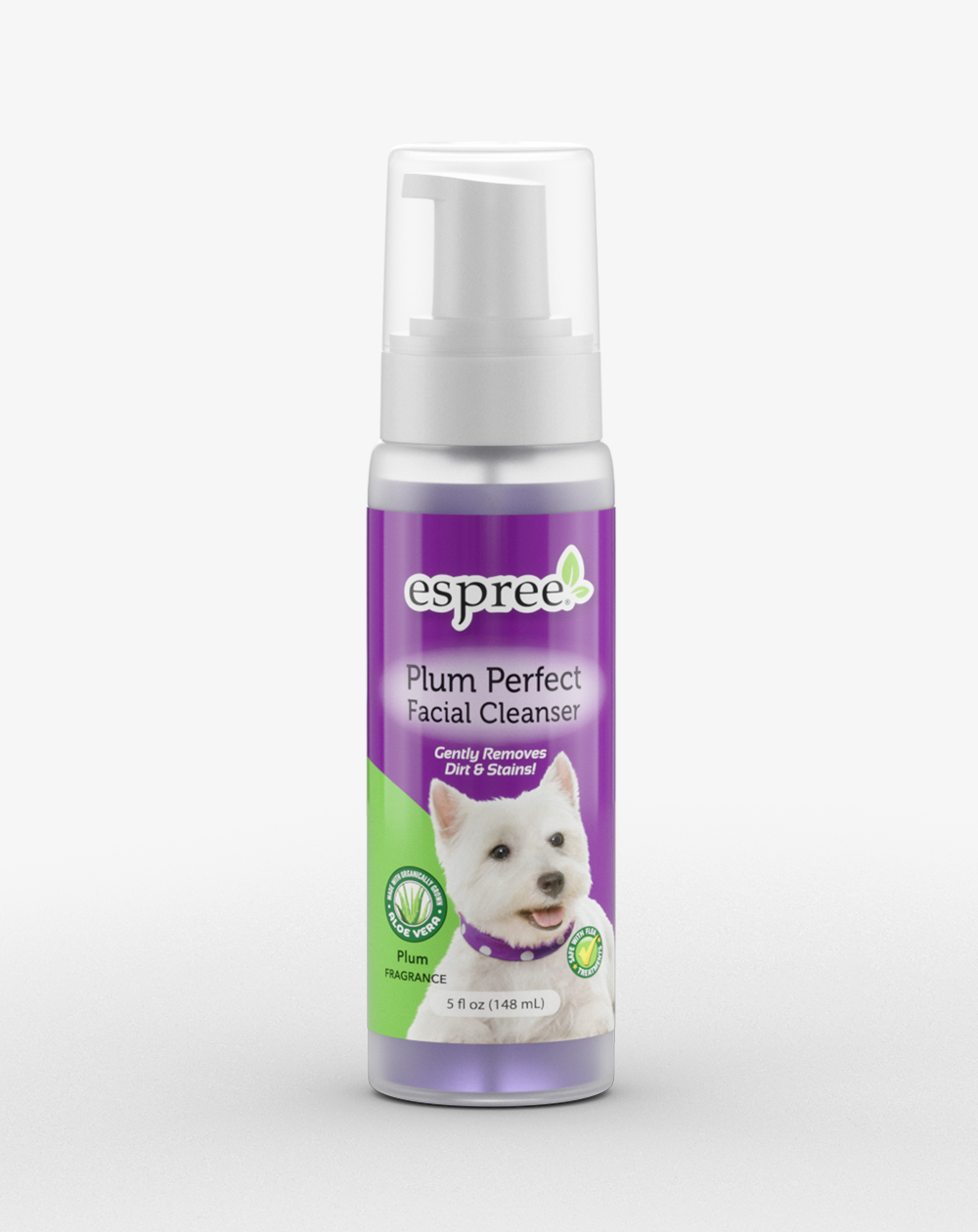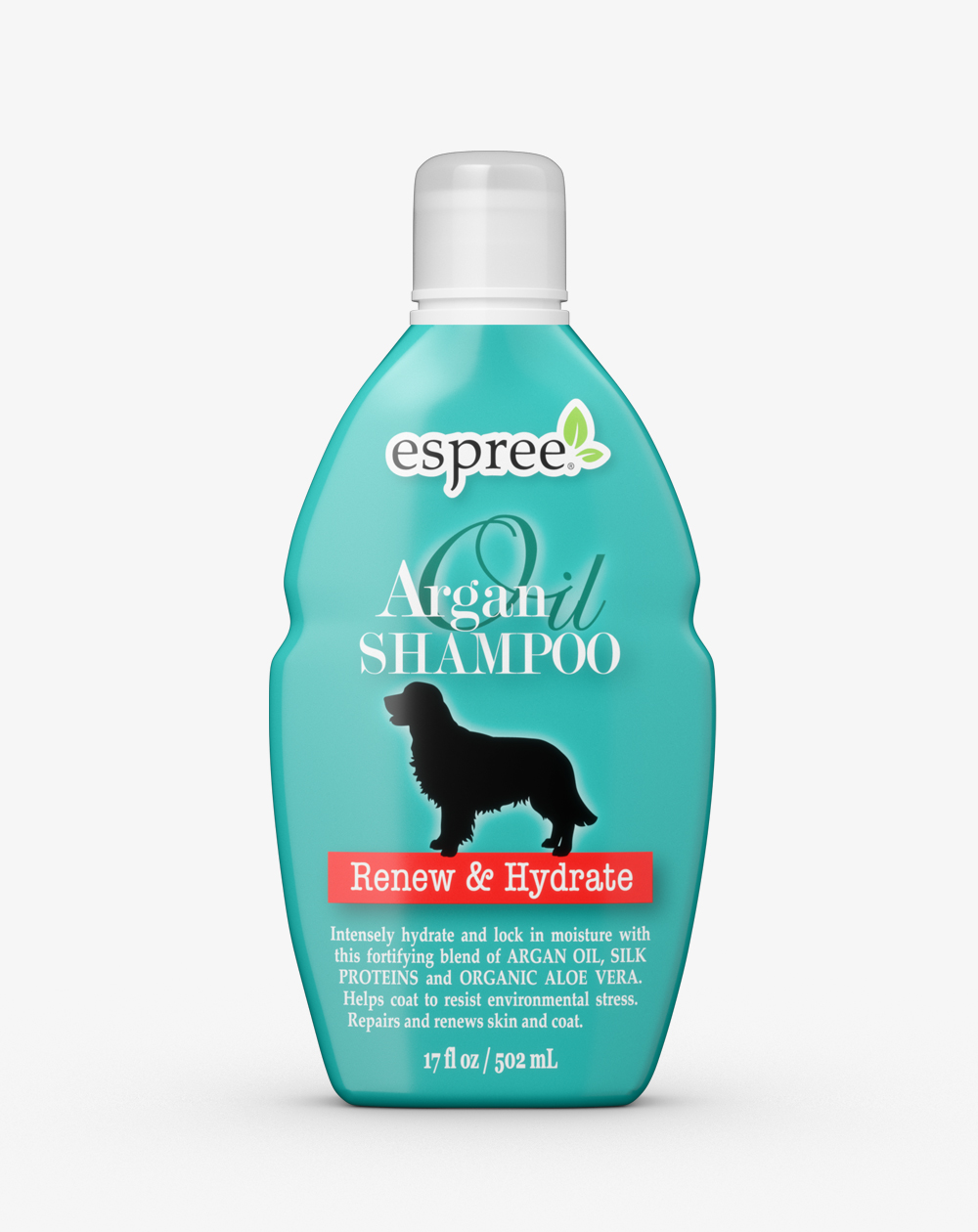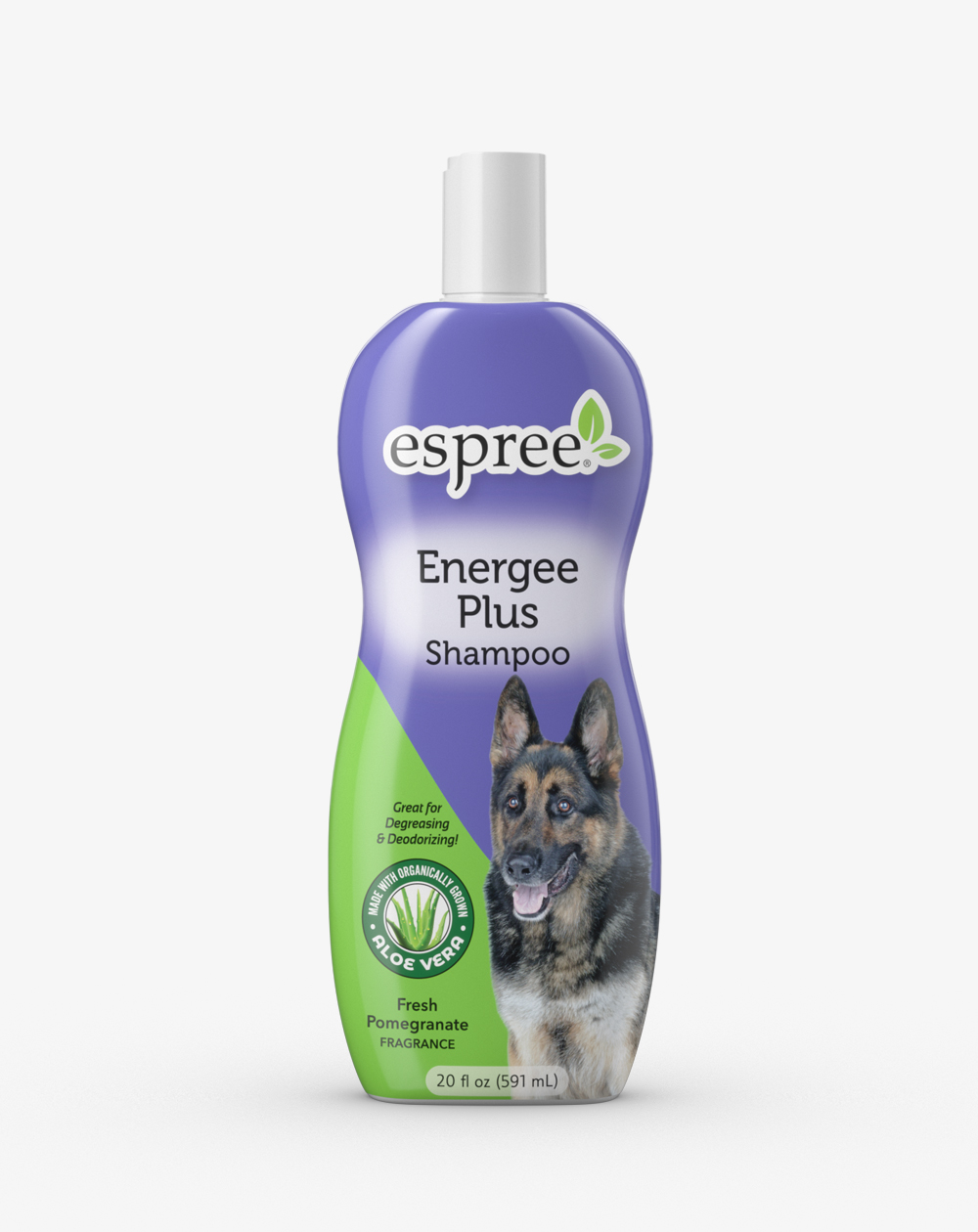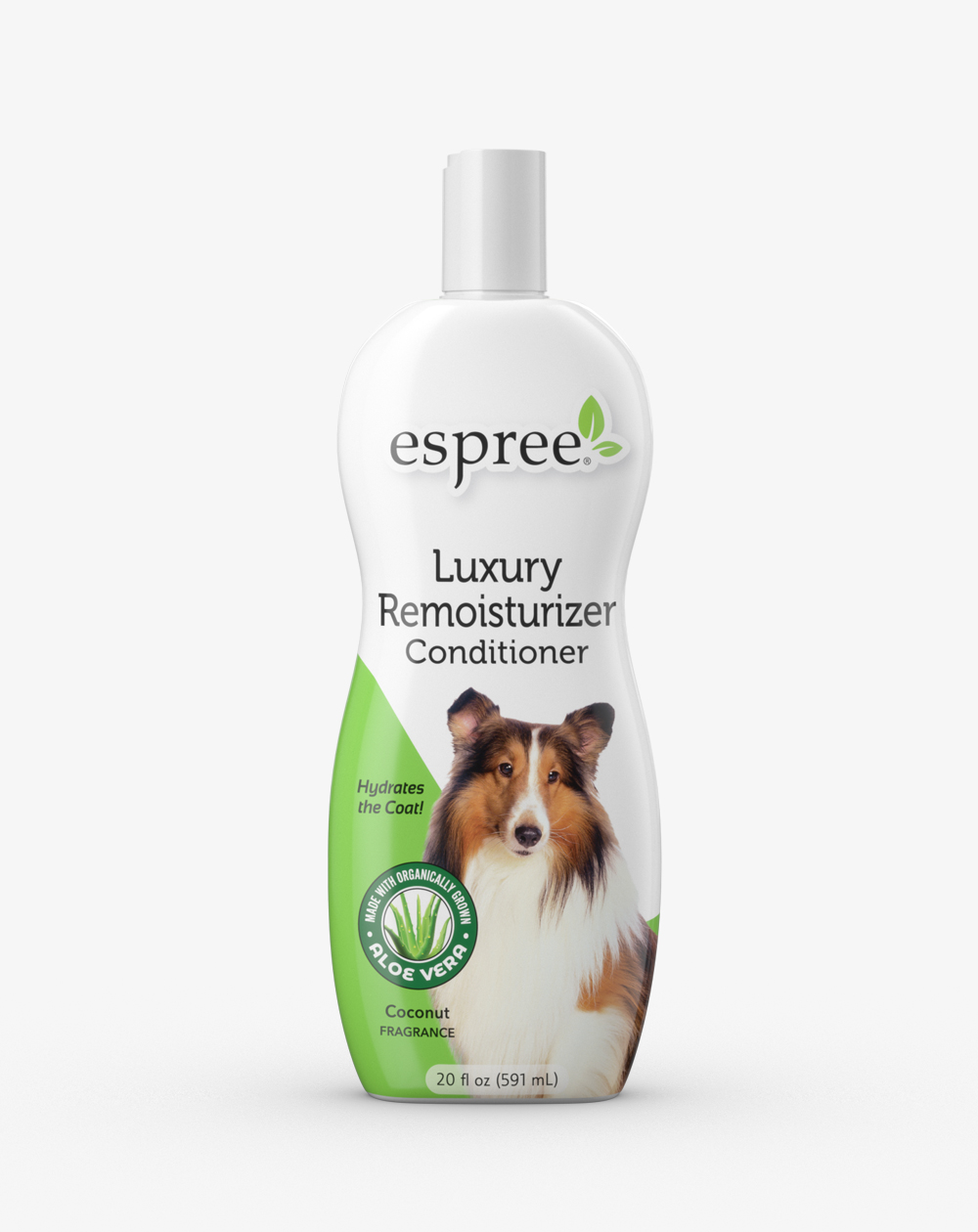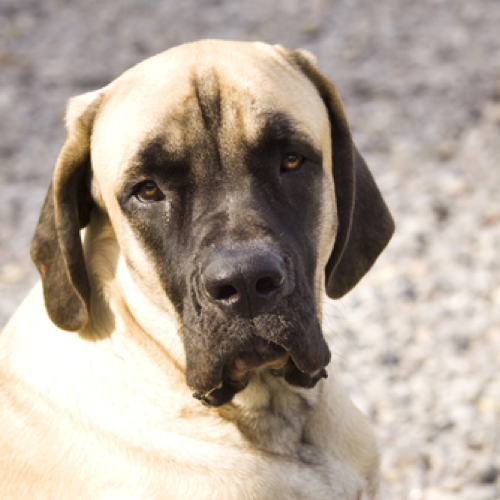
Mastiff (English)
One of the biggest dogs recognized by the American Kennel Club, the massive Mastiff loves being around people and is known to bond closely with his ‘family.’ A combination of grandeur and good nature as well as courage and docility, he was bred in England and used as a watchdog for more than two thousand years. The breed’s short coat can be fawn, apricot or brindle.
Breed Profile
The Mastiff is a powerful yet gentle and loyal companion, but because of his size and need for space, he is best suited for country or suburban life. The breed requires light exercise and minimal grooming.
Grooming
The Mastiff does require regular bathing and grooming. This gentle dog can be bathed weekly up to every six to eight weeks depending on his activity level and lifestyle. With this short and dense coated breed, regular bathing is essential to minimize shedding and to maintain healthy skin and coat.
Before bathing, it is recommended to go over the dog’s entire body with a high-velocity dryer to facilitate the removal of any loose coat, and to loosen any dirt and debris from this dense coat. If you do not have access to a high-velocity dryer, a slicker brush would be the next best option. Lightly card the coat to help accelerate shedding as well. Now, it’s bath time!
Finishing the Dog: Tools and Finish Grooming
The Mastiff should be bathed and groomed on a regular basis to keep the coat in prime condition and to minimize shedding. Shedding is a natural process and cannot be stopped. Regular baths and blowouts along with brushing will accelerate the shedding process. It is always beneficial to use a hydrating spray after the bath and drying process. This allows the skin and coat to lock in moisture in order to maintain perfect hydration. As a finishing touch, before using the hydrating spray, use a grooming mitt and message in a circular motion to stimulate the release of natural oils in addition to the removal of any loose hairs. Then finish with hydrating spray.
General Health Care
Prep work is the foundation of all grooming. Prep work includes ear cleaning, nail trimming, anal glands, and proper dental hygiene. Mastering these skills sets the professional pet stylist apart from the rest. Prep work should be done before every bathing and grooming appointment. All dogs need to have their ears checked and cleaned on a regular basis. Proper nail care is also very important. Long, unsightly nails are uncomfortable for the dog, as well as anyone they might jump on. Long nails also compromise the shape of the foot. Trimming the pads of the foot helps give the dog good traction on different surfaces and can minimize the amount of dirt the dog tracks into the house. It also affords the opportunity to treat and condition the paws from cracks and abrasions. Anal glands should also be checked and expressed if they are full. Some caring pet owners prefer to have the anal glands done by their veterinarian. Good dental hygiene is essential for a healthy pet as well.
Nutritional Care
In order to maintain healthy skin and coat as well as overall health, it is important to provide good nutrition to your dog through a well-balanced diet, vitamins, and healthy treats.
Do they require a lot of grooming?
They require minimal grooming. Routine baths and brush outs are recommended to minimize shedding and keep the skin and coat in good condition.
What are the common problems in Mastiffs?
Some issues in the breed are more common are Cystinuria (an inherited metabolic disorder that can cause stones to form in the kidneys and urinary tract), cancer, hip and elbow dysplasia, PRA (Progressive Retinal Atrophy), and seizure disorders (such as Epilepsy).
Do Mastiffs shed or cause allergies?
They do shed year around. Frequent baths and blowouts will help accelerate the shedding process and help keep the skin and coat in good condition.
Are they good with children?
Mastiffs are wonderful dogs with children. They are very gentle, quite tolerant, and they adore licking kid’s faces.
What if I have a show dog?
Whether you have a show dog or a companion dog, the same basic care is given regarding nutrition, socialization, and hygiene. The difference is the conditioning of the dog and conformation training. It is always quite helpful if your breeder can help mentor you to lead you in the right direction upon entering the wonderful world of dog shows. A great place to start is the Mastiff Club of America, www.mcoamastiff.com.

